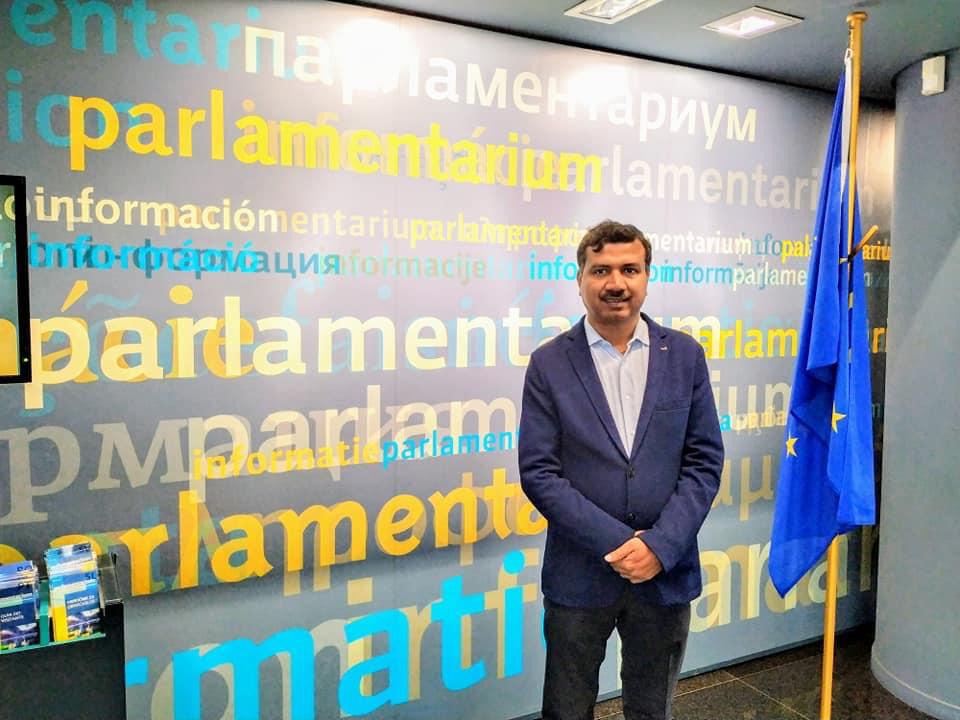INDIA. Maharashtra. Sixteen years ago, in 2004, social worker Chetan Bhairam became familiar with Anna Hazare, (aka) Kisan Baburao Hazare, an Indian activist for rural development. Bhairam believed he could make a bigger impact on a cause he was passionate about through journalism, so he switched professions.
From social worker to award-winning journalist. Bhiaram became passionate about the endemic problem of farmers’ suicide, so he began writing for the newspaper focused on farmers’ rights, alongside chief editor Prakash Pohre.
“Basically I belong to farmer’s family,” Bhairam told Transcontinental Times. “So all these problems I have personally seen, felt, and understood, which motivated me to do something for this region.”
While the farmers’ plight has not been eliminated, Bhairam is proud that some good has come as a result of heightened awareness. “National level irrigation projects came to this region (the Gosekhurd irrigation dam project) and many state government irrigation projects also came.”
His efforts earned him the Farmer’s Friend Award (Sheti Mitr Puraskar) from the state government. He insists, “The prize was not important; it was the love of the farmers and the many people which motivated me to work [for] them.
Commitment to unbiased journalism. Bhairam is committed to uplifting the voice of marginalized farmers, but he is equally committed to unbiased journalism. “In India some of the media is divided along political lines, but many are working unbiasedly. The media tries to report whether the backward class is getting the proper benefits of government schemes or not. Media tries to cover both ideologies; it is the people who judge whether it’s right or wrong.”
He continued, “Indian journalists are given the “Right to Expression” which supports [an] individual’s right to express their views, but at the same time it doesn’t mean that anyone should be accused/ blamed. With the help of this fundamental right, the Indian media works.”
There have been reports in India of journalists being jailed for speaking against the BJP government, and Bhairam shared his experience. “I’m not a very big journalist, but there were a few past incidents when I was presenting my views and I was threatened by the ruling party, but the local administration provided me the proper security. Also, the government of Maharashtra has made a rule that if any journalist has been attacked or threatened then this is a serious non-bailable offence. So in this way the media & journalists are protected. Since the “Right to Express” is the fundamental right of every individual, there is no point that can impact my perspective or divert my reporting.”
In Bhairam’s 16 years of reporting, he has managed to gain the favor of many political friends with whose help the issues of the farmers have been raised and real solutions have been implemented. However, systemic challenges remain.

Shift to local sector is solution to unemployment crisis. In a nation of nearly 1.4 billion citizens, unemployment remains the most pressing crisis in India. Bhairam shared that, “India is a very densely populated country and despite having many problems, India is progressing at a great pace using technology in various sectors like agriculture, startups, industries, power plants, highway projects, new airports, and also exporting goods to various countries in the world. Indians are very hardworking, cultured.”
He readily admits that “more employment [needs] to be created. Micro & Small Industries (MSMEs) should be promoted instead of supporting a single industry/industrialists. Employment should focus on local & rural areas only.”
Bhairam sees some positive gains in the sudden shifts caused by the COVID-19 lockdowns. Indians who had sought a subsistence life in the urban areas of India were forced to return home to their villages. While this caused a crisis for many migrant workers left stranded on the highways and in rail stations, some who found their way home to their villages have been given opportunities, mostly in their local agricultural sectors.
“It requires a strong political will to bring change and [fair crop prices won’t happen] until the administration [stops] act[ing] like a puppet of the industrialists. I think that India is currently heading towards western capitalism, and it’s sad. But let’s hope that this pandemic will give another direction to my country.”
True to his principles that local growth will yield national results, Bhairam has gained a wide influence through the years. Many other journalism offers have come to him, but he has no intention of leaving his region or his cause. “I am responsible for using my articles in the newspaper to fight for farmers’ rights, and still I’m working as they have not got full justice till date.”

